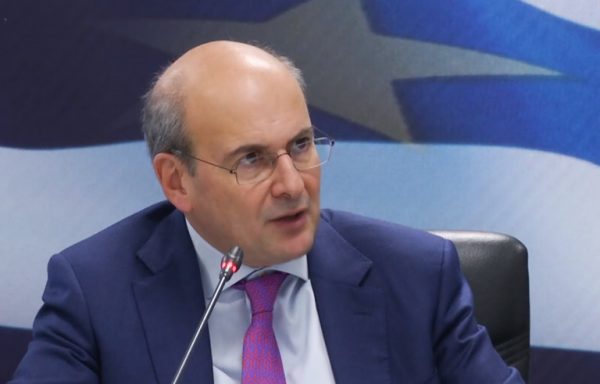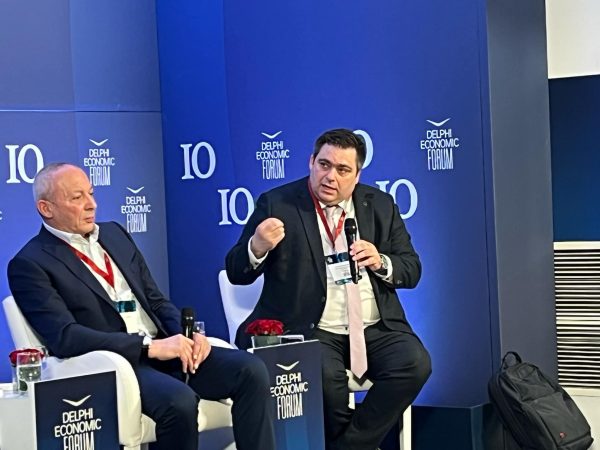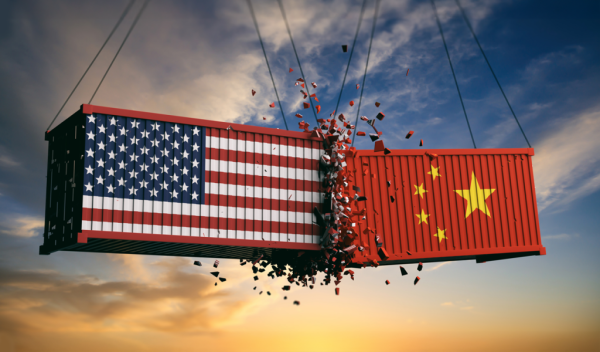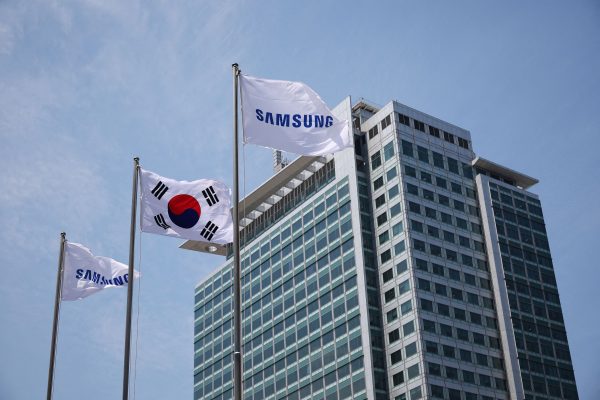
Richard Morningstar, board director at the Atlantic Council and the founding chairman of the Atlantic Council Global Energy Center, as well as former US Ambassador to the EU (1999-2001), has extensive experience in geopolitics and energy. He spoke about the crisis between the West and Russia, about Nord Stream 2, and Ukraine, but also about US-European relations.
Let’s start with a current “hot” topic. You have significant knowledge and extensive experience in energy and Europe. So can you tell us if and to what extent possible sanctions against Russia over Nord Stream 2 could affect its policy in Ukraine?
I believe that, in combination with other possible threats, they could have a significant impact on Russian policy. I believe that President Biden, based on the information available, has made it clear to Russia, as well as National Security Adviser Jake Sullivan, that gas will not start flowing into the Nord Stream if Russia invades Ukraine. I hope that there is a similar commitment from Germany. If that’s the case, then Putin will have to make a cost-benefit calculation of the consequences of these sanctions for Nord Stream 2, as well as other possible sanctions that could cause even greater difficulties for Russia.
You are well aware that Europe is already energy dependent on Russia. And it will remain so, at least until it reaches the “zero carbon” era, which is not going to happen in the near future. At the same time, Russian gas seems to be the simplest and cheapest solution to meet European demand. So why is the US talking about a “bad deal” concerning this pipeline?
You’ve asked a very good question. It is a fact that even during this energy transition, gas will continue to be important. And Russian gas will always be part of the equation, either through Nord Stream 2 or through other pipelines. The question is how much Russian gas Europe should buy. And whether Russia will be able to use it as a political weapon in the event of over-dependence. It is important to have other alternatives so that Russia is not able to use energy as a weapon, in order to force countries to make decisions that serve its own geopolitical interest. It is important that the energy transition proceeds as quickly as possible, that there are alternatives using LNG, through other pipelines that reach Greece from the Caspian and the eastern Mediterranean, as well as from other sources. It is important that the three seas initiative goes ahead and that Greece be part of this structure in Central, Eastern, and Southeastern Europe and that larger quantities of gas be allowed to pass through a country like Greece. That would create a competitive energy market, with suitable alternatives, so that Russia could not use gas as a weapon – and that is the goal. Obviously, Nord Stream could have consequences for Ukraine as well, in the sense that Russia will eventually be able to exclude it from being a transit country. And this gives it greater opportunities to intervene in Ukraine, whether they invade or not.
Do you think that the scenarios of Russia’s invasion of Ukraine are realistic?
You have to ask that question of Mr Putin. I think that from the whole list of what he wants, Putin would not want anything more than for Ukraine to return to Russia’s orbit. Whether it will eventually invade or use the threats to change Ukraine’s policy towards NATO and other issues is a question. He has to calculate the cost of something like that. From an economic point of view, from a military point of view, it could create a very problematic situation for him.
Whatever happens in Ukraine, the climate is already very bad between the West on the one hand – the US and the EU in particular – and Russia and China on the other. Are you afraid of the prospect of a new Cold War?
It depends on how you want to define it. It could be – I personally do not like to think of it as the Cold War – growing tension between the US and Europe on the one hand and Russia and China on the other. Let’s hope that the US will be able to work with both of these countries in areas where all countries have an interest in working together. I think one of the things that is happening, because of this tension with Russia, is that the US and European countries are coming closer. Even on issues like Nord Stream 2, which has divided the US and Germany, president Biden has suspended sanctions, while the United States and Germany are working together to reduce Russia’s energy threat and any possible impact of Nord Stream 2 on Ukraine. The Russian threat against Ukraine and its actions, even on energy issues in recent months by not sending more gas to Europe in the midst of the energy crisis, I believe, are bringing the US even closer to European countries, so that they arrive at a common direction in dealing with Russia.
Do you really think that the US and Europe are on the same side, in geopolitical issues, trade, competition? Macron’s Europe, and especially France, are talking about “strategic autonomy”, even within NATO.
I will put it this way: I was the US Ambassador to the European Union from 1999-2001. It was a time when our relationship was very positive. We had issues, though, even then. Of all kinds, but mainly in economy and trade. But were we friends and partners? Yes. Because we share the same values and if we work together we can have better results than if we worked apart. Under Biden, we have begun to work more closely on a range of issues, such as climate change and trade. However, the fact that we work together does not mean that we will not have problems. And that’s okay, we don’t have to agree on everything. As long as there is a general relationship of trust and the basis of common values. And I believe that we are achieving that.
Was the AUKUS agreement an act of trust between partners, between the US and the EU, especially France?
This obviously caused some difficulties, especially between the US and France. President Biden has publicly acknowledged that the handling was not managed well by the United States. He talked to Macron about it and cleared up the misunderstanding, the mistakes that were made, and how things could have been done. The agreement itself, although I’m not a military expert, is seen in the US as a valuable development in dealing with China. It is seen as a good deal. Yes, there could have been better management with France, France should have been informed earlier and given to understand what was happening. I believe that relations between the United States and France remain at a very good level.
Latest News

Airbnb Greece – Initial CoS Ruling Deems Tax Circular Unlawful
The case reached the Council of State following annulment applications filed by the Panhellenic Federation of Property Owners (POMIDA)

Mitsotakis Unveils €1 Billion Plan for Housing, Pensioners, Public investments
Greek Prime Minister Kyriakos Mitsotakis has announced a new set of economic support measures, worth 1 billion euros, aiming to provide financial relief to citizens.

Alter Ego Ventures Invests in Pioneering Gaming Company ‘Couch Heroes’
Alter Ego Ventures' participation in the share capital of Couch Heroes marks yet another investment by the Alter Ego Media Group in innovative companies with a focus on technology.

Corruption Still Plagues Greece’s Driving Tests
While traffic accidents continue to claim lives on Greek roads daily, irregularities and under-the-table dealings in the training and testing of new drivers remain disturbingly widespread

Pope Francis Died of Stroke and Heart Failure Vatican Confirms
As news of the official cause of death spread, tributes poured in from across the globe. The 1.4 billion-member Catholic Church is united in grief, remembering a pope who championed inclusion, justice, and compassion

Increase in Both Museum Visits, Revenues for 2024
As expected, the Acropolis was the top archeological site in the country, followed by Sounion, Mycenae, the ancient theater of Epidaurus, and Vergina in northern Greece

Where Greece’s Tourists Come From: A Look at 2025’s Top Visitor Markets
The United Kingdom continues to hold the top spot as the largest source of incoming tourism, with 5.6 million seats booked for Greece this summer — up 2.2% from last year. This accounts for 20% of all international air traffic to Greece

Pope Francis: A Pontiff Who Reshaped the Papacy and Sparked a Global Conversation
His first words from the balcony of St. Peter’s Basilica—“Brothers and sisters, good evening”—set the tone for a pontificate that would challenge norms, favor mercy over dogma, and bring the papacy closer to the people.

When Blue Skies was Unmasked as ND’s Political ‘Slush Fund’
The fact that so many top New Democracy (ND) party cadres were paid by the firm Blue Skies, owned by Thomas Varvitsiotis and Yiannis Olympios, without ever citing this publicly, raises very serious moral issues, regardless of the legality

Greek Women’s Water Polo Team Top in the World after 13-9 Win Over Hungary
The Greek team had previously defeated another tournament favorite, the Netherlands, to reach the final.











![Πλημμύρες: Σημειώθηκαν σε επίπεδα ρεκόρ στην Ευρώπη το 2024 [γράφημα]](https://www.ot.gr/wp-content/uploads/2025/04/FLOOD_HUNGRY-90x90.jpg)




![Ξενοδοχεία: Μεγάλο το ενδιαφέρον για επενδύσεις στην Ελλάδα – Η θέση της Αθήνας [γραφήματα]](https://www.ot.gr/wp-content/uploads/2025/03/Athens-hotels-90x90.jpg)
























 Αριθμός Πιστοποίησης
Αριθμός Πιστοποίησης